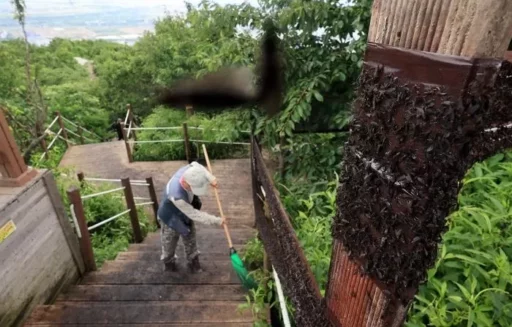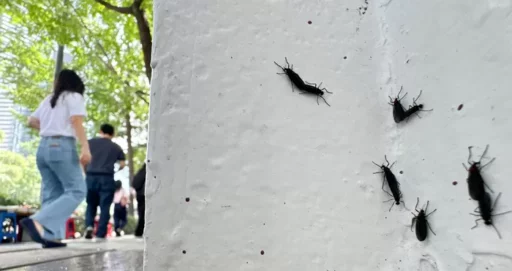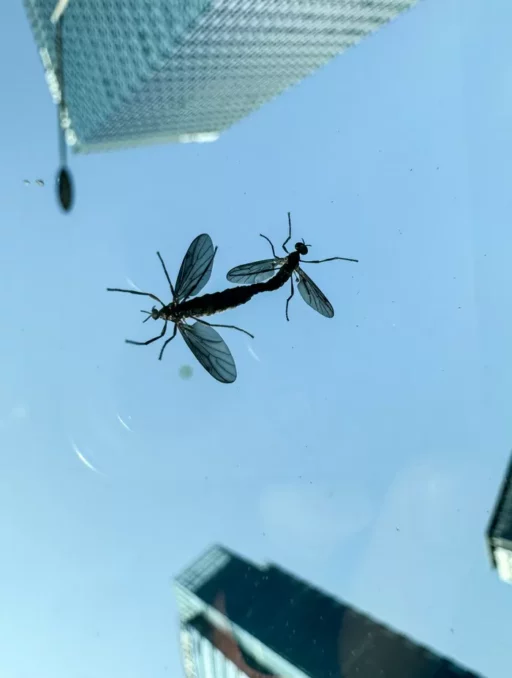Lovebug: "Just wait for a week"… Expected to naturally disappear by the weekend
Recent projections suggest that the lovebug (red-throated fly) population, which has recently exploded in numbers mainly in the Seoul metropolitan area, will naturally diminish within 5 to 8 days.
On the 6th, the Korea Forest Service’s National Institute of Forest Science announced the results of an analysis predicting the occurrence patterns of lovebugs using a forecasting model.

According to the analysis, as of the 1st, it was predicted that about 86% of the total activity of the lovebug had already occurred. Most individuals are expected to naturally disappear within 5 to 8 days. Based on the Forest Service's analysis, it appears that the majority of lovebugs will be gone around the weekend of the 12th to 13th.
Characteristics of Lovebug Occurrence This Year and Ecological Impact
This year, the initial occurrence of lovebugs has been delayed by about a week compared to last year, which has also pushed back the end point slightly. The National Institute of Forest Science has been predicting the activity period of lovebugs by combining citizen science platforms with weather data.

Lovebugs are known to be a corroding fly species primarily observed in East Asia, including Japan, China, and Taiwan. They do not cause direct harm to humans or crops but can cause inconvenience in daily life when they occur in large numbers.
Experts warn that the use of pesticides for extermination may disrupt the ecosystem, leading local governments to take eco-friendly approaches for pest control.
Current Status of Lovebug-related Complaints
According to the Seoul Metropolitan Government, there were 4,695 lovebug-related complaints recorded from January to June this year. This marks a decrease of about 49.4% compared to the same period last year (9,274 complaints).
However, lovebug extermination complaints have shown an annual increasing trend: 4,418 in 2022, 5,600 in 2023, and 9,296 in 2024.

Han Hye-rim, head of the Forest Pest Research Division at the National Institute of Forest Science, stated, "We will do our utmost to establish effective response measures for lovebugs in collaboration with related departments," and added, "We will continue to strive to provide reliable predictive results."
Image source: Lovebugs covering the summit of Gyeyangsan in Incheon / News1, Lovebug / News1


